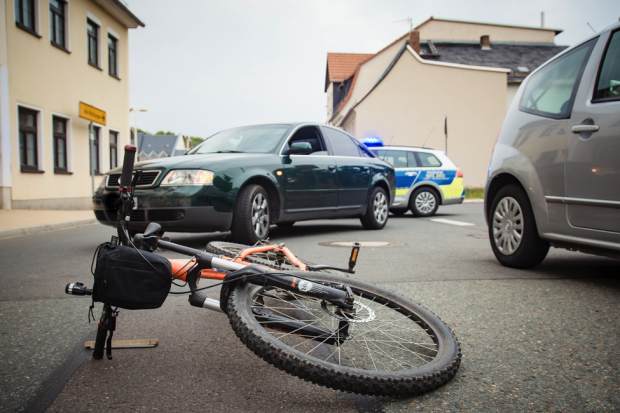Here’s What You Need to Do When Involved in a Bicycle Accident
Every day we take risks when we step outside our front doors. We often don’t think about them because living a life constantly worried about what could happen makes us miss all the fun we can have. Riding a bike is something you’ve done countless times since you were a kid, so you think nothing of hopping on and going for a cycle.

The problem is that plenty of accidents involving cyclists occur each day, usually at the hands of motorists. Motorists and cyclists have always gotten along poorly because cyclists feel they deserve to use the road as well, while motorists feel more in control because of the vehicles they drive. Regardless, bike accidents happen and it can be a disorienting experience to go through, so here are the necessary steps to take if you get involved in a bike accident.
Contact a Lawyer
One of the earliest steps to take is to contact some legal representation. It’s important to have the law on your side in this regard because a possible insurance claim or court case will be difficult to manage on your own. If you visit BestBicycleAccidentLawyer.com, you can see how quick it can be to get in contact with a lawyer or get advice on what to do next. Lawyering up, as it’s so often called, is a smart choice to make sure that you don’t do anything that might ruin your chances of success in winning the case and receiving the compensation you deserve.
Contact Police and/or Emergency Services
This is also a step you’ll want to do quickly after an accident. Depending on the severity of the incident, there may be a lot of injury issues to deal with. A car weighs a lot more than a bicycle, obviously, so the damage could be bad. You want to call emergency services, like police, EMS, or the fire department, right away so that you can make sure that any injuries can be properly assessed, treated, or get transported to the hospital safely. Similarly, it’s important to call emergency services promptly so that they can cordon off the scene of the accident to prevent anyone mismanaging evidence, or a crowd gathering and things from getting out of control.
Create a Detailed Account of the Incident
If it’s possible, assuming your injuries aren’t bad enough that you need to leave the scene quickly with the assistance of EMS or first responders, you want to collect a detailed account of all the information you can gather of the incident. This means taking pictures of the accident, leaving your bike exactly where it was post-accident, writing down the time of the accident and other relevant details, and anything else that will be of assistance to the investigation. This helps your lawyer make a better case on your behalf if they have all of the proper information readily available.

Swap Information with the Motorist
Assuming it was a motorist involved in the accident, and it almost always is, you’ll want to swap information with them. Collect their name, phone number, license plate number, their insurance contact, and any other kind of contact information that will help. This allows you to keep them accountable and to provide the relevant information that your lawyer will need to use in creating a case for you as well as a claim that will be used for your insurance. Aside from swapping this information, you’ll want to remember not to engage with the driver(s) to avoid arguments, altercations, or anything that can be used against you regarding the incident.
Keep Tight-Lipped About the Incident
Lastly, you don’t want to give too much detail to people about what happened. Just like you wouldn’t chat away with the motorist involved, you also don’t want to say too much to friends or family. You want to keep tight-lipped because anything you say can be linked back to you, and your insurance company will dig deep into anything they find in reference from you about the accident. Keep off social media, talk to and confer with your lawyer, and you will be in much better shape for a claim.
A bicycle accident seems like such a foreign idea because you have been riding one since you were a kid, but the reality is that they happen to anyone, of any skill level. Riding a bike well doesn’t stop motorists from driving recklessly or with disregard for your safety, so knowing those steps is vital to handling an accident situation.
